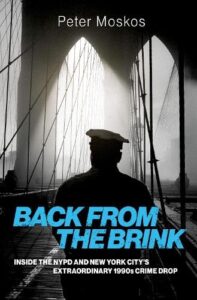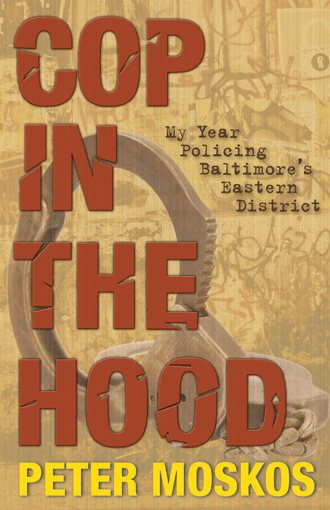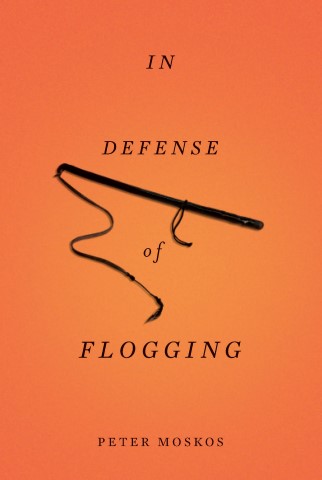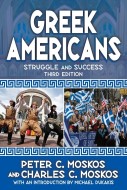Back from the Brink: Inside the NYPD and New York City’s Extraordinary 1990’s Crime Drop
(Oxford University Press, March 2025). Amazon link: https://amzn.to/4bdhjXE
Facebook page for the book, with some pictures

With crime of heightened concern in the country’s largest cities, Peter Moskos brings readers behind the Blue Wall of the NYPD, offering insight into policing solutions directly from the law enforcement officers who went to war against crime in New York in the 1990s, and won.
“If you want to understand the historic crime drops and transformative evolution of New York City that began in the 1990s, a great place to start and end would be Back from the Brink. An informative and entertaining narrative that keeps you absorbed with personal stories of many of the men and women of the iconic and fabled NYPD. There has been no shortage of books that have attempted to tell this story, including three of my own, but from my perspective this is one of the best. I learned so much about the department and people I’ve known for years. Read it and you will be very glad you did.”
—Bill Bratton, New York City Police Department Commissioner and Los Angeles Police Department Chief (retired)
“Back from the Brink shows how police work in New York made an extraordinary difference: not by mass arrest or the so-called zero-tolerance policies that fill holding cells, but by deploying police to the right places, arresting the right offenders, and then debriefing every witness, informant, and accomplice to learn and act on all that can be known. This is not to say that the economic transformation of a city doesn’t matter or that police can’t be sullied by ‘stop-and-frisk’ lock-them-all-up excess, but Moskos, in a careful oral history of an extraordinary crime drop, makes clear how policing, when used to actually address and solve crimes, can be transformational. A worthy read.”
—David Simon, writer and producer of The Wire and We Own This City, and author of Homicide and The Corner
“If there is any good news on crime, we are taught that the last people who had anything to do with it were the cops. In Back from the Brink, cops talk at length about the work they’ve done and the challenges they have faced. Peter Moskos has created a keystone work that gives us a window on reality.”
—John McWhorter, Professor of Linguistics at Columbia University, host of the podcast Lexicon Valley, and weekly writer for The New York Times
“Peter Moskos does it again! This time telling the multi-decade drama of the Big Apple’s crime nosedive in the 1990s. The question of why crime went down has vexed me for much of my working life, and Peter Moskos helps answer the question. I am pleased and relieved Back from the Brink breaks away from a conventional textbook approach and borrows from the style of Pulitzer Prize winning oral historian Studs Terkel. Moskos lets the major players in the NYPD speak for themselves with voices that are distinctive, gritty, sometimes confessional, and ultimately persuasive.”
—Clarence Page, Pulitzer Prize winning columnist and member of the Chicago Tribune editorial board
“Back from the Brink is a unique and compelling history of New York City, told by people whose individual voices and experiences are frequently flattened and marginalized in service of grand theories of the criminal justice system. Written by Peter Moskos, a brilliantly trained sociologist and a former cop who has a profound grasp of debates over policing and its consequences, the book gives voice and agency to the individuals that actually tackled crime and gives their strategies an honest depiction and a fair hearing. With a clear-eyed understanding about corruption and racism in policing, Back from the Brink provides a better sense of the people—their background and motivations—attempting to make New York City a safer place.”
—Michael Fortner, Professor of Government, Claremont McKenna College
Reviewed in the Washington Examiner (March 6, 2025), ( Toronto Sun (March 23, 2025).
In addition to Back from the Brink, I have written three other books: Cop in the Hood, In Defense of Flogging, and Greek Americans (Plus a little self-published gem: Grammar 101).
Cop in the Hood (Princeton University Press)

• Winner of the 2008 PROSE Award for Best Book in Sociology.
• “Perhaps the best sociological account on what it means to police a modern ghetto.” —American Journal of Sociology
• “Hard-edged sociological analysis.” —Harvard University Professor Orlando Patterson
• “Leads to a rethinking of some important ideas in the sociology of deviance.” —Professor Howard Becker
• “The best recent study in the field of urban ethnography…. An exemplar for the field of sociology.” —Yale University Professor Elijah Anderson
• “Moving description of big city policing.” —Northeastern University Professor Peter K. Manning
• “Congratulations!!!” —MIT Professor John Van Maanen
• “A must read.” —Columbia University Professor Sudhir Venkatesh
• “Truly excellent.” —George Mason University Professor Tyler Cowen
• “A masterpiece of the participant observation genre.” —Princeton University Professor Mitchell Duneier
• “Never mind ‘The Wire.’ Here is the real thing.” —The Wall Street Journal
• “Riveting.” —The Atlantic
• “Engaging as well as persuasive.” —Baltimore Sun
• “An adrenaline-accelerating night ride.” —Publishers Weekly
• “Genuinely eye-opening.” —Times Higher Education
• “Should be made mandatory reading for every recruit in the Balto. City Police Academy. … I am so proud that you were a Baltimore Police Officer and a good one.” —Baltimore City Colonel (ret.) Margaret Patton.
In Defense of Flogging (Basic Books)

• You rascal, I thought. Moskos … knows how to catch our attention. —Clarence Page, Chicago Tribune
• Moskos presents us with a true dilemma…. He compels us to rethink our ideas…. It is invariably jarring to overcome a prejudice or abandon a dearly held belief—I try to avoid doing either—but Moskos makes it an intriguing, if unsettling, experience. —“The Ethicist” Randy Cohen
• Don’t laugh: He makes a convincing case…. Clear, smart and highly readable prose…. Let the debate begin. —Craig Seligman, Bloomberg
• Peter Moskos’ In Defense of Flogging might seem like a satire — akin to Jonathan Swift’s “A Modest Proposal,”… but it is as serious as a wooden stick lashing into a blood-splattered back. —Adam Cohen, Time.com
• Forces the reader to confront issues surrounding incarceration that most Americans would prefer not to think about. —Mansfield Frazier, The Daily Beast
• Moskos’s argument is unconventional and convincing. Those interested in prison reform will find much to contemplate here. —Library Journal
• A brilliant piece of work…. Witty, entertaining, and creative. —Professor Wendell Bell, Yale University
• “An elegant polemic.” —Maclean’s
• Moskos’s argument is moral, deeply felt, and deeply affecting…. There is a deeper, righteous anger here at that species of denial that allows for a population of 2.3 million Americans to be written off as disposable…. After reading Moskos’s necessary book, it is hard to view such ignorance, such denial, as anything less than ethically repugnant, a violation of our responsibilities as citizens. —Rain Taxi Review of Books
• [Moskos’s] provocative book makes many sanely provocative points; it is one I’ve urged on those who want to do more reading on the subject, and I’d urge it again now. —Adam Gopnik, New Yorker
• By the end… Moskos might just have you convinced. —Salon.com
• Read the first part of In Defense of Flogging for free.
Greek Americans: Struggle and Success (3rd edition) (Transaction Publishers, now Routledge)

• Who were the Greeks? How did they make their way in this new and strange world of America? How is it that they have achieved so much and still maintain strong ties with their heritage? It’s all here in this wonderful book. —Michael Dukakis
• This book enhanced my understanding of the Greek American experience. Moskos’s odyssey from migration to assimilation is a compelling one. The book is well researched. I recommend it.” —Nicholas Sofios, Contemporary Sociology
• The best modern history of the Greek immigrants and their progeny. Moskos gives us an incisive analysis of why Greek Americans have come so far so quickly. —Nicholas Gage, author, Eleni
• A comprehensive overview and personal assessment. —Eva E. Sandis, International Migration Review
Grammar 101: No pretty pictures. No fancy layout. No bullshit. Just the basics, given to you straight

Grammar 101 is a self-published (free) gem for smart students who should know the basics of English grammar, but do not. If you need help with complete sentences and subject-verb agreement, this little booklet is for you! In just a few short easy-to-understand pages, learn what makes a sentence complete, subject-verb agreement, and correct comma usage. It is free online or in a PDF version. If you want a bound copy, you can buy one on Amazon.com for cheap.